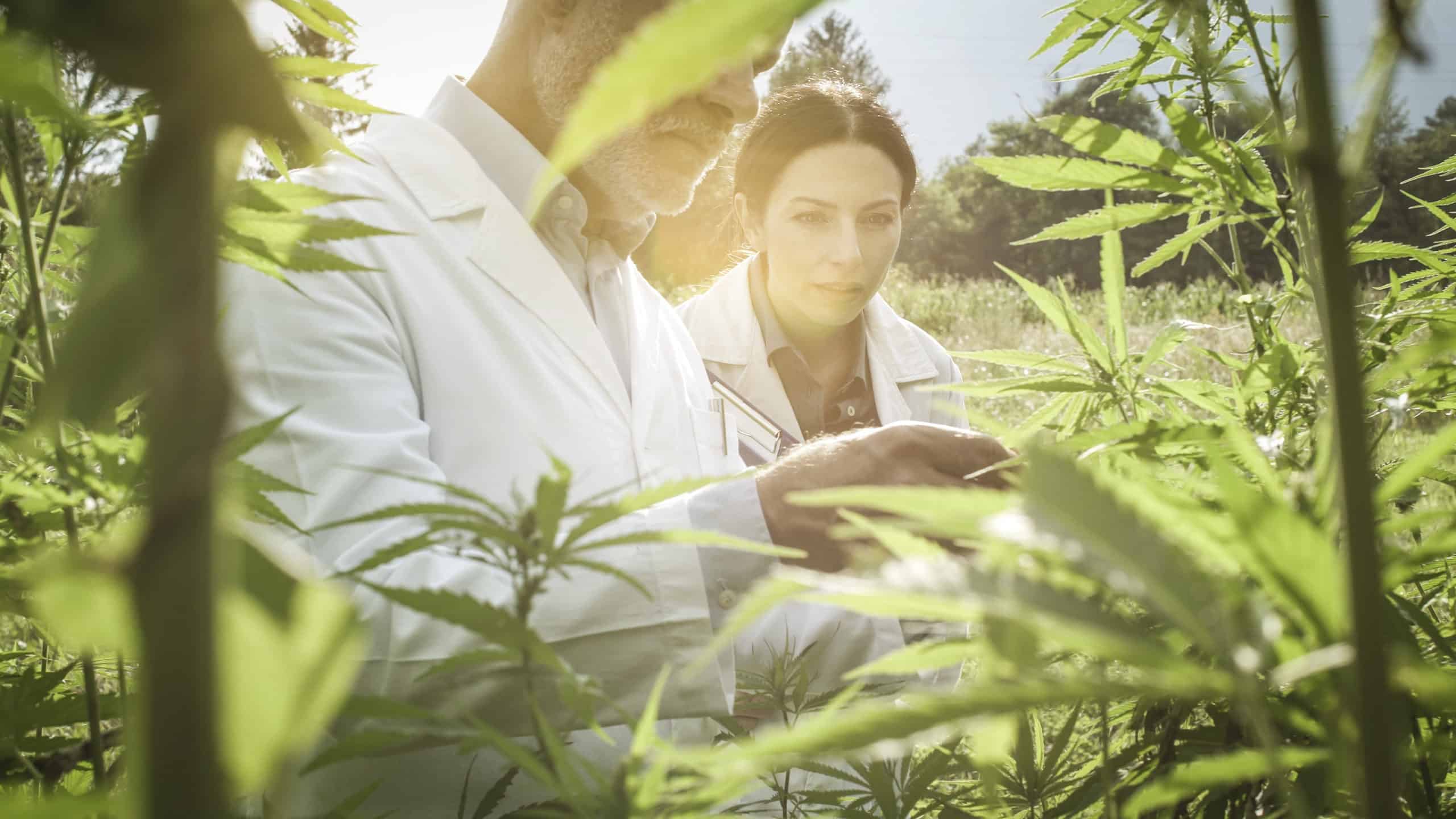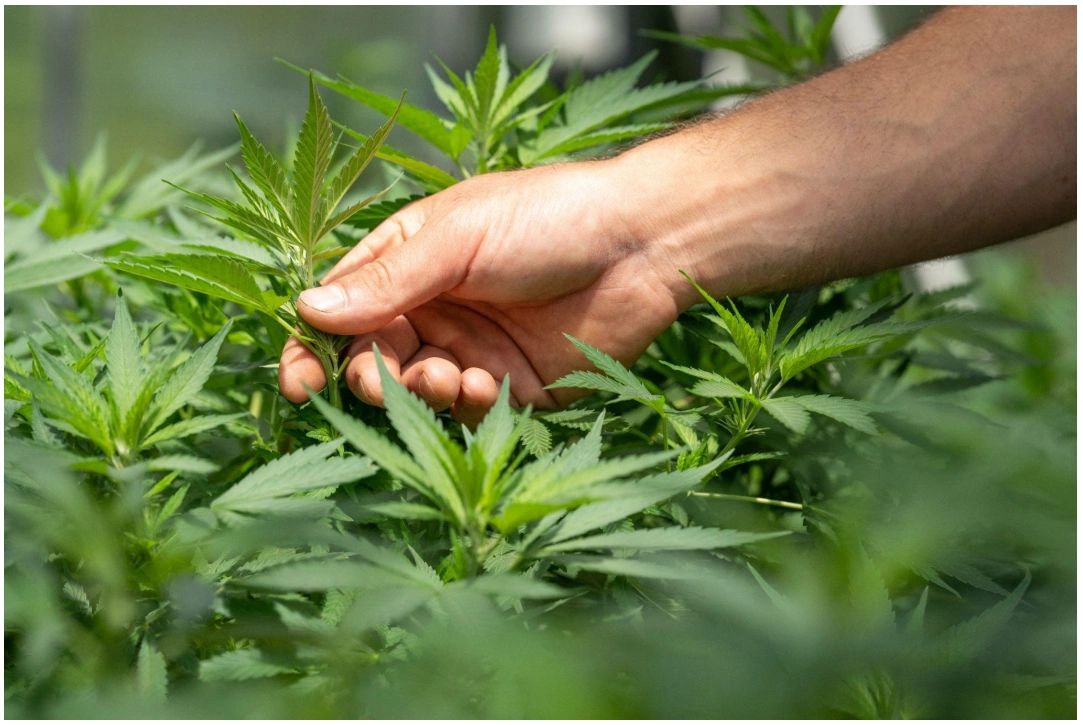Looking for a new way to experience the benefits of cannabis without getting too high? Look no further than Delta 8 THC. This lesser-known cannabinoid is gaining popularity among those seeking a milder, more manageable high. In this comprehensive guide, we’ll explore what Delta 8 THC is, its different forms, and how it can benefit you. Plus, we’ll take a look at some recipes to help you incorporate Delta 8 THC into your daily routine. So sit back, relax and get ready to learn all about this exciting new cannabinoid!
Table of Contents
What is Delta 8 THC?
Delta 8 THC is a cannabinoid that occurs naturally in cannabis plants. It’s similar to the more well-known Delta 9 THC, but with some distinct differences. For one, it’s less psychoactive than Delta 9 THC and produces a milder high. This makes it an attractive option for those who want to experience the benefits of cannabis without feeling too intoxicated.
Delta 8 THC is produced when Delta 9 THC degrades over time. It can also be extracted from hemp using special techniques that isolate and concentrate its properties.
One of the most exciting things about Delta 8 THC is its potential therapeutic uses. Preliminary research suggests that it may have anti-inflammatory, analgesic, and neuroprotective properties. Some people use it to manage pain, anxiety, nausea, and other symptoms.
While still relatively unknown compared to other cannabinoids like CBD or Delta-9-THC; there’s a growing interest around this compound because of its unique effects on both body & mind!
The Different Forms of Delta 8 THC
Delta 8 THC is a cannabinoid that has been gaining popularity among users due to its unique properties. One of the things that make Delta 8 THC stand out from other cannabinoids is the fact that it comes in different forms, each with its own set of benefits and drawbacks.
One popular form of Delta 8 THC is edibles. Edibles are an easy way to consume Delta 8 THC discreetly, and they come in many different flavors and strengths. They can be found in gummies, chocolates, baked goods, and more.
Another common form of Delta 8 THC is tinctures. Tinctures are liquid extracts that are taken sublingually or added to food or drinks for ingestion. They allow for precise dosing and have a faster onset time than edibles.
Vaping is also a popular method of consuming Delta 8 THC. Vape cartridges containing Delta 8 THC oil offer fast relief from symptoms as they enter the bloodstream quickly through the lungs.
Topical products like lotions and balms infused with delta-8 lube provide localized pain relief without any psychoactive effects.
Each form of Delta 8 THC offers its own unique advantages depending on individual preferences and needs – making this cannabinoid versatile enough to serve multiple purposes.
The Benefits of Delta 8 THC
Delta 8 THC is gaining popularity in the world of cannabis for its potential health benefits. Unlike Delta 9 THC, which can cause anxiety and paranoia, Delta 8 THC offers a calmer, more relaxed high. Here are some of the potential benefits of using Delta 8 THC.
Firstly, Delta 8 THC has been shown to help reduce nausea and vomiting. This makes it an excellent option for those undergoing chemotherapy or suffering from other conditions that cause severe nausea.
Secondly, research suggests that Delta 8 THC may have anti-inflammatory properties. This means it could potentially help alleviate inflammation-related pain such as arthritis or fibromyalgia.
Thirdly, users have reported improved mood and reduced anxiety after consuming Delta-8 products. It’s believed that this is due to how the compound interacts with neurotransmitters in the brain.
Unlike CBD which doesn’t get you high at all; many people enjoy using delta-8 lube because they find its relaxing effects helpful for sleep or relaxation without feeling too out-of-control high like with traditional marijuana products.
While further research is needed on the long-term effects of delta-8 lube use; initial studies suggest promising results and highlight its therapeutic potential in treating various ailments.
The Side Effects of Delta 8 THC
Delta 8 THC is a compound that has become quite popular in recent years due to its potential benefits. However, it’s important to note that just like any other substance, Delta 8 THC comes with possible side effects.
One of the most common side effects associated with Delta 8 THC is dry mouth. The compound can reduce saliva production and cause dehydration, leading to discomfort. Drinking plenty of water before and after consuming Delta 8 THC can help prevent this effect from occurring.
Another possible side effect of Delta 8 THC is dizziness or lightheadedness. This may occur due to a drop in blood pressure levels caused by the compound. To avoid this, it’s best to consume Delta 8 THC in low doses until you understand your body’s reaction.
Consuming high doses of Delta 8 THC could also lead to feelings of anxiety or paranoia for some individuals who are more sensitive or have an underlying anxiety disorder. As such, it’s crucial that you know your tolerance level when using the product.
Similar to other cannabinoids such as CBD and marijuana products; use of delta-8 lube might result into drowsiness especially if consumed at night thus should be avoided while driving heavy machinery or doing activities which require alertness.
It’s essential always keep these possible side effects in mind when using any form of delta-8 products so that you can adjust dosage accordingly and enjoy safe consumption without experiencing unwanted adverse reactions.
How to Use Delta 8 THC
When it comes to using Delta 8 THC, there are a few things to keep in mind. First and foremost, it’s important to start with a low dosage and gradually increase until you find the desired effect. This will help prevent adverse reactions.
There are several ways to consume Delta 8 THC, including vaping, edibles, tinctures, and topicals. Vaping is one of the most popular methods because it allows for quick absorption into the bloodstream. Edibles take longer to kick in but can provide a longer-lasting effect.
Tinctures are taken sublingually (under the tongue) and absorbed through the mucous membranes for faster onset than edibles but slower than vaping. Topicals are applied directly onto the skin and can be used for localized pain relief or relaxation.
It’s also important to note that Delta 8 THC may interact with other medications or supplements you’re taking, so always consult your doctor before use if you have any concerns.
Finding the right method of consumption and dosage is key when using Delta 8 THC. Experimentation combined with caution will lead to an enjoyable experience without unwanted side effects.
Delta 8 THC Recipes
Delta 8 THC has taken the wellness industry by storm, and it’s no surprise that people are finding creative ways to incorporate it into their daily routines. One way to do so is through Delta 8 THC recipes.
From baked goods like brownies and cookies to gummies and tinctures, there are plenty of ways to infuse Delta 8 THC into your favorite treats. However, it’s important to note that dosing can be tricky with edibles, so be sure to start small and go slow until you find the right dosage for you.
If you’re looking for a quick and easy recipe, try mixing Delta 8 THC oil or tincture into your morning coffee or smoothie. This is a great way to start your day off on the right foot while reaping the benefits of Delta 8 THC.
For those who enjoy baking, consider trying out a recipe for Delta 8 THC-infused chocolate chip cookies or brownies. Just remember to keep track of how much Delta 8 THC you’re using in each batch.

Ultimately, experimenting with different recipes can be a fun way to incorporate this beneficial cannabinoid into your life. Be sure not to overdo it though as too much consumption could lead unwanted side effects such as dizziness or grogginess later on in the day!
Alternatives to Delta 8 THC
While Delta 8 THC may be a popular choice for those looking to enjoy the benefits of cannabis, it is not the only option available. There are several alternatives to Delta 8 THC that can offer similar effects and benefits.
One alternative is CBD (cannabidiol), which is another compound found in the cannabis plant. However, unlike Delta 8 THC, CBD does not produce any psychoactive effects. Instead, it is known for its potential anti-inflammatory and anxiety-reducing properties.
Another alternative is CBG (cannabigerol), which is also a non-psychoactive cannabinoid found in cannabis. Like CBD, CBG has shown potential as an anti-inflammatory agent and may also have neuroprotective properties.
For those who prefer not to use cannabinoids at all, there are other options such as terpenes or herbal supplements like ashwagandha or chamomile that can promote relaxation and stress relief.
It’s important to note that while these alternatives may offer similar benefits to Delta 8 THC, everyone’s body reacts differently so it’s best to experiment with different options to see what works best for you.
Conclusion
Delta 8 THC is a fascinating compound that has numerous benefits and some potential side effects. It is available in different forms, including edibles, vapes, tinctures, and topicals. Additionally, it can be consumed in various recipes to add a little kick.
While Delta 8 THC provides many advantages like reducing anxiety and pain relief, it’s essential to remember that it may not be suitable for everyone due to its psychoactive properties.
If you’re considering using any Delta 8 THC products or trying out the delta-8 lube as an alternative option for pleasure enhancement during intimacy with your partner(s), we recommend consulting with your healthcare provider first.
If used responsibly and carefully monitored by medical professionals or cannabis experts alike (if necessary), then there’s no doubt that this natural substance could help alleviate symptoms of various ailments while also providing users with a more enjoyable experience.


![How to fixed [pii_email_11fe1b3b7ddac37a081f] error code in 2021?](https://constructionscope.net/wp-content/uploads/2021/03/How-To-Fix-pii_email_11fe1b3b7ddac37a081f-Error-Code-In-Microsoft-Outlook-748x375.jpg)

